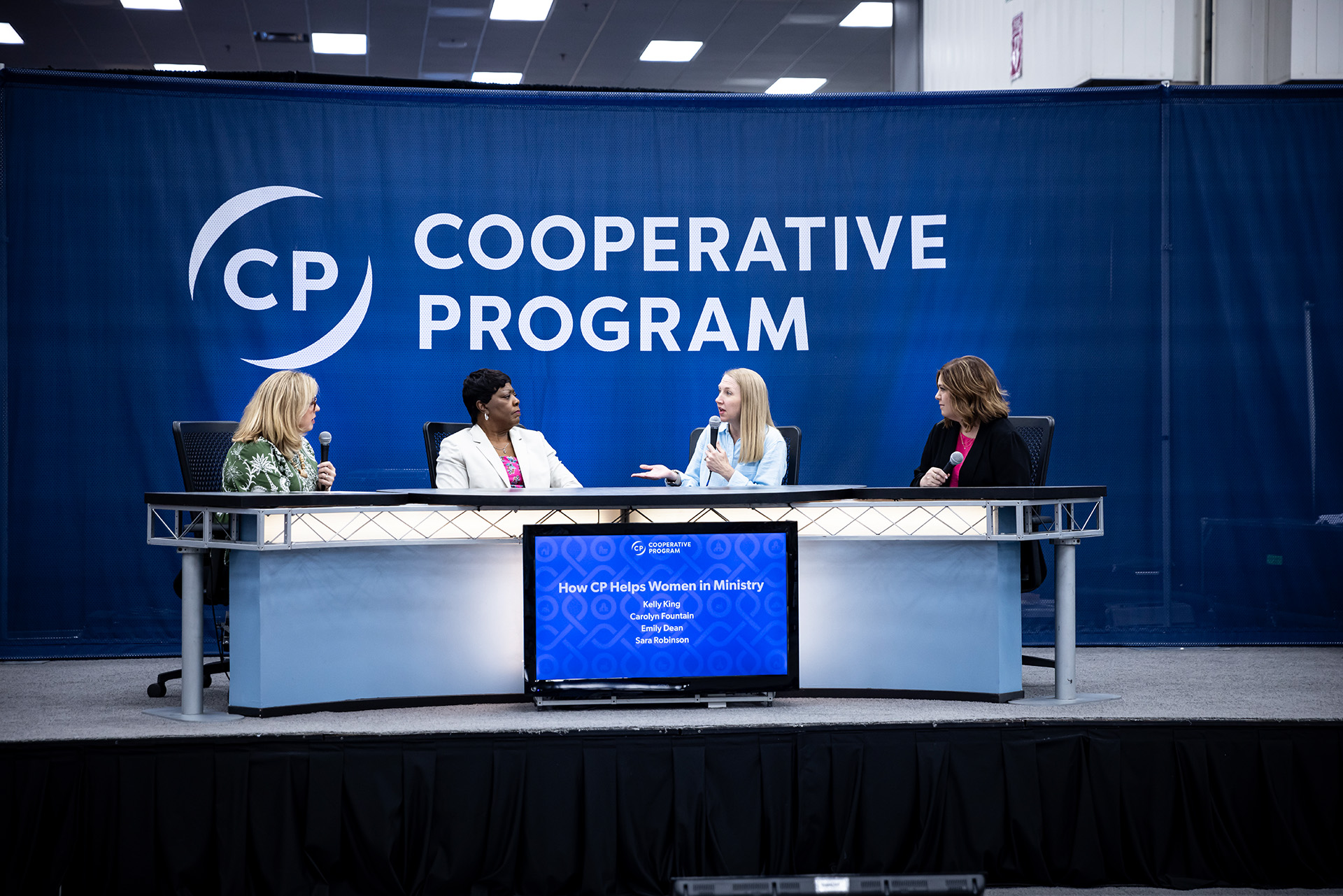
Emily Dean, assistant professor of ministry to women at NOBTS, participated in a CP stage panel at the 2024 SBC Annual Meeting which discussed how the Cooperative Program helps support women in ministry.
The panelists spoke about how the Cooperative Program helps fund the ministry of women serving in various roles throughout the SBC including BCM directors, state convention workers and missionaries.
Dean explained the Cooperative Program also enables women to receive seminary training as they prepare for ministry.
“We have women studying at the undergraduate level, the graduate level and the doctoral level, and women who are members of Southern Baptist churches get the opportunity to study at a reduced rate of tuition,” Dean said. “It really makes seminary education affordable for women.
“A lot of women feel like seminary education might be inaccessible to them, but the Cooperative Program greatly helps women who desire to pursue theological education and just makes it a little bit more feasible and accessible for them.”
Dean, who also serves as the director of ministry to women academic programs and the Barbara O'Chester chair of women's ministry, said the more that churches value and emphasize missions, the more Southern Baptists will want to offer their financial support.
“I would say that (missions) is really why we were organized and so I feel like Southern Baptists are eager to support missions,” Dean said. “The stronger the missions emphasis is in a church the more I would definitely say that people would be willing to give. And even with seminary education, of understanding how many of our missionaries come and prepare and train and are benefited by those dollars not only for support when they go on the field, but for training as well.”
When asked who it was that originally inspired her to pursue ministry, Dean spoke of her grandmother.
“She definitely set the example for me of what it was to really lead and serve women through the WMU and through teaching women about missions in the local church and also teaching the Bible in the local church,” Dean said.
“I’m just grateful for the example that she set when I really didn’t realize that she was setting that example for me until much later in life. But she was just doing what the Lord was leading her to do and being faithful and I greatly benefited from that example.”
Dean and the other panelists then emphasized the importance of sharing specific examples of women in ministry that the Cooperative Program has supported and continues to support.
“Any way that you can educate women just on how to participate through their giving and helping them to see what that money goes to and how those funds are being used I think goes a long way,” Dean said. “They realize that these are actual people who are being served through these different programs.”
Carolyn Fountain, former president of the Louisiana WMU, spoke about her experience learning about the Cooperative Program and its impact.
“It was interesting for me not coming from a Southern Baptist background to learn about the Cooperative Program,” Fountain said. “I thought it was the best thing that I’d heard as far as ministry goes.
“I think we can take every opportunity to share the programs that we’re involved in that are fueled by Cooperative Program funds. I think as often as we can share how our programs are funded, I think that would be a big help.”
Sara Robinson, women's ministry and transition consultant for the Kentucky Baptist Convention, shared some of her ministry story and echoed the importance of sharing these stories with young women.
“I think we should also tell the stories of how the CP has impacted us throughout our lives,” said Robinson, a double graduate of NOBTS.
“We have to become that chief repeating officer. My earliest memories of wanting to be in ministry were in GAs, sitting on a carpet square and hearing the stories of missionaries and how they were serving around the world. We can’t cease telling our stories.
“We have to continue telling how we’ve been equipped, how we’ve been raised, how the Cooperative Program has fueled our own personal journey in ministry and then encourage other young women coming along behind us to do the same thing.”
The full panel discussion can be viewed on the Cooperative Program YouTube page.